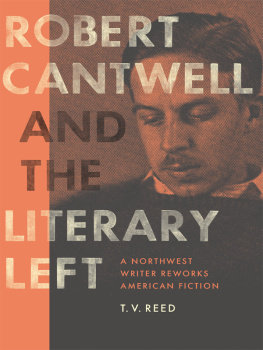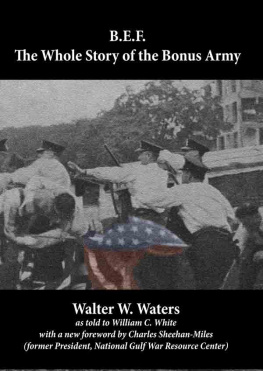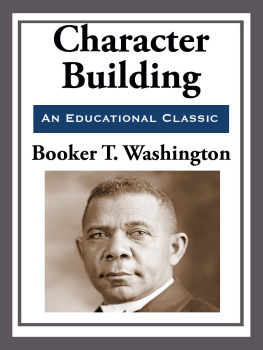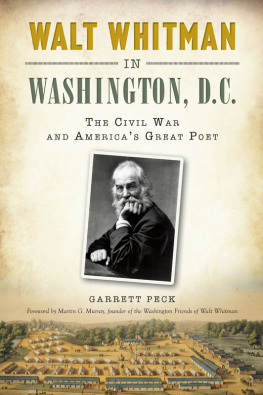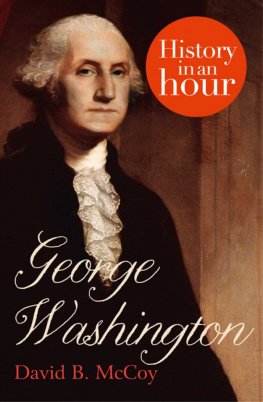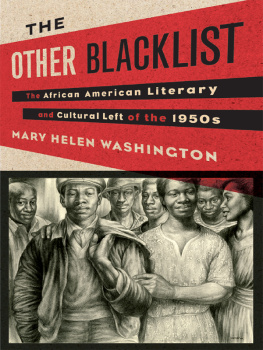LITERARY WASHINGTON, D.C.
LITERARY WASHINGTON, D.C.

edited by
PATRICK ALLEN
foreword by
ALAN CHEUSE

TRINITY UNIVERSITY PRESS
SAN ANTONIO

Published by Trinity University Press
San Antonio, Texas 78212
Copyright 2012 by Trinity University Press
All rights reserved. No part of this book may be reproduced in any form or by any electronic or mechanical means, including information storage and retrieval systems, without permission in writing from the publisher.
Design by Anne Richmond Boston
Trinity University Press strives to produce its books using methods and materials in an environmentally sensitive manner. We favor working with manufacturers that practice sustainable management of all natural resources, produce paper using recycled stock, and manage forests with the best possible practices for people, biodiversity, and sustainability. The press is a member of the Green Press Initiative, a nonprofit program dedicated to supporting publishers in their efforts to reduce their impacts on endangered forests, climate change, and forest dependent communities.
The paper used in this publication meets the minimum requirements of the American National Standard for Information SciencesPermanence of Paper for Printed Library Materials, ansi Z39.48-1992.
Library of Congress Cataloging-in-Publication Data
Literary Washington, D.C. / edited by Patrick Allen ; foreword by Alan Cheuse.
p. cm.
Includes bibliographical references.
Summary: Memoir, fiction, essays, poetry, and songs blend to create a balanced and nuanced literary portrait of Washington, D.C. The voices of some 36 writers comprise the volume. Foreword by Alan CheuseProvided by publisher.
ISBN 978-1-59534-125-9
1. American literatureWashington (D.C.) 2. Washington (D.C.)Literary collections. I. Allen, Patrick, 1965
PS548.D6L63 2012 |
810.8'09753DC23 | 2011051284 |
16 15 14 13 12 5 4 3 2 1
Cover illustration: The City of Washington, birds-eye view from the Potomaclooking north, drawn by C.R. Parsons. Library of Congress, Geography and Map Division.
Contents
A writer, the lore would have it, has to have a sense of place, some location that you were born in and grew up in and whose life you are steeped in until the work is stewed and ready for the table. Thats the Eudora Welty gold standard for the making of good fiction, and its a fine rule, if you can make it your own. If you apply it to most of the poets and novelists who have written about life in the District of Columbia, they will fail the test. Washington, D.C., has made a place for itself in the literary imagination of the nation, but it is, with few exceptions, mostly transients rather than permanent residents who have written well about it.
Part of this peculiar citys sense of place is that it serves as a capital for people who have no permanent sense of place. All of us came to this country from somewhere else, the American Indians by way of the land bridge from Siberia, Greenlanders and Irish monks (if you believe the myths) by storm-tossed oceangoing ships and rafts, explorers from the Mediterranean, settlers from just about every nation in Europe, railroad builders from China, black slaves untimely ripped from their native Africa, refugees from various historical holocausts around the world, people seeking good jobs or just good wage labor, people arriving on foot and by airplane, by train and truck and by ship. That is how we made our country, which remains a nation of transients still, where most people uproot themselves and move away from wherever they started at least several times in their lives.
Its fitting that every four years the nation has an opportunity to express its will on whether the incumbent president and his minions should vacate the White House or stay. In the worst of historical times, it seems as though the people base that will on certain social needsjobs, food, housing, an end to oppressionbut in the best of times, and we have been lucky enough recently to see some of those, the electorate just sometimes seems to desire to get things moving again. Were American, they say in one huge voice, so lets get on the road again and see if we can do better with the next place or, in the case of elections, with some new people.
Given that Washington is the capital of the country of movement and change, its appropriate that most of us who have written about it have come from somewhere else and, who knows, may go somewhere else after a while here. Presidents come and go, senators come and go, and congresspeople come and go (although not as quickly as the velocity-driven sense of American transience would like them to move). Why not writers and poets?
Myself, I arrived here in 1987 and have lived here longer than I have lived anywhere else in my adult life (and if I think back on it, in my childhood either, since my mother, true first-generation American that she was, was constantly changing apartments and then houses and then towns within the northeast New Jersey county where I was born). Contemporary writers Susan Richards Shreve and Patricia Browning Griffith, whose work appears in this book, have lived here a number of decades. But they came here from elsewhere, Shreve from Ohio, when her father took a job in the Roosevelt administration, and Griffith from Texas more recently than that. Ward Just, who has taken on the admirable and terribly difficult role of becoming the chronicler of human sorrow within the governments that come and go, lived here a long time but came from elsewhere, and he now seems to spend most of his time in Europe and on Cape Cod.
The majority of the writers gathered in these pages are more obviously from elsewhereHenry James and Walt Whitman, to name two of the most prominent transients who have used Washington as a subject in one way or another.
Gore Vidal, who wears lightly the cape of the chronicler of the pageantry and psychic foibles of historical Washington administrations from Jefferson to Lincoln and beyond, lived here as a boy, and in his memoir Palimpsest he describes how he led his grandfather, blind Senator Gore, among the newly constructed marble buildings on Constitution Avenue. Archibald MacLeish worked in the government for a time, then departed. Larry McMurtry still keeps a residence, and a bookstore, in Georgetown, but has long since made his main residence in Texas. Rita Dove lives in Charlottesville, 100 miles down the road; she spent two good years here as poet laureate. (Robert Penn Warren, Richard Wilbur, Robert Pinskyalso a fellow New Jerseyan and the only three-term laureateand Robert Hass, among others, have also served in that office, though not all spent the same number of days, weeks, and hours here.)
Passing through! The poets and fiction writers seem to move through with nearly the same velocity as presidents!
Its the rare writer, as I mentioned earlier, who opened his eyes on this turf at birth. Thats why in the fiction of Edward Jones and Marita Golden, for example, we get a special perspective on the capital city, not as a place that many people refer to as the capital of the world, but as a true homeplace as Welty understands it, where people are born, live, love, make families or destroy them, suffer, laugh, and end only a little further along than where they began. This is not the Washington of the Smithsonian and the Jefferson Memorial and Foggy Bottom and the Mall. You get a different view of life when youre standing on the corner of Georgia Avenue and Harvard Street, looking south (especially if you have lived through the 1968 riots so terrifically described by Trinidadian writer V. S. Naipaul in his 1971 novella
Next page

